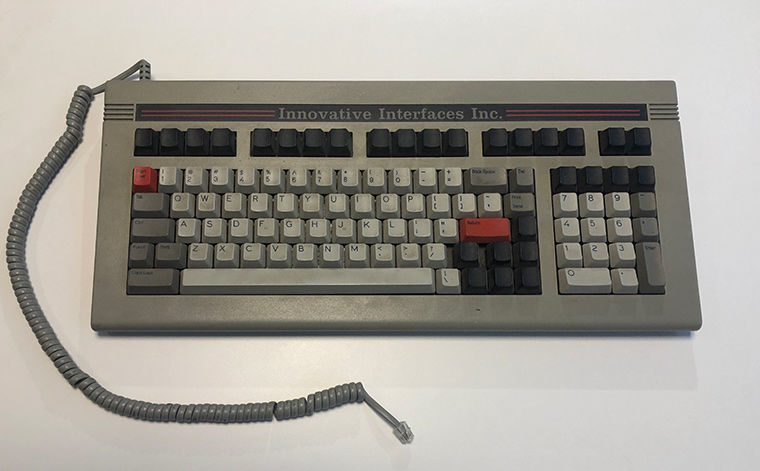Notes
-
🔖 Rodrigo Ochigame, "Informatics of the Oppressed" –
[F]rom the very beginnings of informatics—the science of information—as an institutionalized field in the 1960s, anti-capitalists have tried to imagine less oppressive, perhaps even liberatory, ways of indexing and searching information. Two Latin American social movements in particular—Cuban socialism and liberation theology—inspired experiments with different approaches to informatics from the 1960s to the 1980s. Taken together, these two historical moments can help us imagine new ways to organize information that threaten the capitalist status quo—above all, by facilitating the wide circulation of the ideas of the oppressed.
-
🔖 Skills for Revolutionary Survival: 5. Communications Equipment for Rebels –
Face the facts. We are tied to our devices in ways that are incredibly useful for organizing, but that also expose us to isolation should the state and companies take away these technologies. Cell phones and the internet rely on corporate infrastructure and is subject to both government surveillance and service denial. What do we do when social media bans anti-capitalists and anti-colonialists? What do we do when our cell phones fully become monitoring devices we willingly keep by our side, all to the benefit of state intelligence services? What happens when our cell phone numbers are blocked from service? How will the revolutionaries continue to communicate locally, regionally, and internationally?
These are the questions that have been left in the dust, forgotten or ignored in favor of more romantic visions of armed struggle. People forget; no struggle has ever been successful without robust communication networks that are not subject to state control. From the French resistance in WWII to the Zapatistas in the Lacandon Jungle, communications matter!
-
🔖 Step Inside The Museum of Obsolete Library Science –

It takes a special kind of confidence to call your company Innovative Interfaces, especially when your innovation seems to be to just take a regular keyboard and make a bunch of the keys not do anything.
-
🔖 WR: Mysteries of the Organism—Beyond the Liberation of Desire –
On the occasion of the birthday of Yugoslavian director Dušan Makavejev, who passed away last year, we explore what his classic 1971 film WR: Mysteries of the Organism has to offer today’s struggles against nationalism, fascism, and dogmatism.
-
🔖 Kelly Pendergrast, "Disassembly Required" –
Instead, what would it look like relate to today’s machines as the 19th century weavers did, and make decisions about technology in the present? To look past the false promise of the future, and straight at what the robot embodies now, who it serves, and how it works for or against us.
-
Last night’s AX.25 failures turned into success! I followed K1CHN’s second post on using the TH-D74A’s TNC over Bluetooth, and successfully made my first connection to a packet BBS, N6ZX-4 on Kings Mountain.
-
I bought a second-hand Kenwood TH-D74A recently (through Craigslist). I’ve messed about with APRS on it, used it for my first SOTA activation, and now am trying to get it hooked up to my Raspberry Pi to use its built-in KISS TNC for Winlink and packet BBSes. K1CHN’s post has been useful. However, shortly after connecting something is leading to it “disconnecting” over USB, with
cdc_acm ...: failed to set dtr/rtsshowing up in the kernel message and (re)adding a new device for the radio. My first guess is that it might be resolved with a choke on the USB cable, but I might try Bluetooth first… -
🔖 Julia Viebach, "Transitional archives: towards a conceptualisation of archives in transitional justice", *International Journal of Human Rights*, 2020 –
This paper seeks to trouble and complicate core assumptions about transitional justice and archives and to critically examine the relationship between them. Records about conflict and dictatorship are like records in general never only a reflection of realities, but they constitute these realities. Following Harris’ plea to find ‘exigencies’ to the transitional justice paradigm it suggests the term transitional archives to highlight the multi-layered afterlife of human rights records. It thereby emphasises the open-ended nature, ‘the in-becoming’, of transitional archives. It argues that by including critical archival studies in our thinking of transitional justice and a violent past, we can push beyond the dominant discourse of healing, closure and reconciliation, and open up space to investigate not only how the past but also transitional justice itself is produced at the intersection of power, memory, narrative and violence.
-
Interested in our User Experience Designer position at Stanford Libraries? Read more about what you’ll be working on, the team on which this sits, and our work. Apply by October 31 for earliest consideration. Contact me if you have any questions.
-
🔖 Yolanda Rankin, Jakita Thomas, and Nicole Joseph, "Intersectionality in HCI: Lost In Translation" –
So how should researchers operationalize intersectionality in the context of HCI? Start by asking a series of questions: Are you thinking about everyone as you design this tool? Who is at the table to inform decisions about how this technology will be designed and for whom? Do the key stakeholders, intended users, and communities in which the technology is being situated for use reflect the diversity of humanity and respect for those who have a history of being disenfranchised and marginalized? How have I, as a person of privilege, co-constructed research engagements with marginalized scholars or communities? Am I conducting research on or with participants? In what ways have I interrogated my privilege (e.g., race or gender) to dismantle hegemonic systems of oppression that exist within HCI? Next, when summarizing findings in papers, be sure to include how power informs the research process. Scholars who use their findings to address intersectionality interrogate how widely accepted research traditions facilitate the social reproduction of whiteness. Calling this out in Method sections becomes an indicator of a scholar’s commitment to using intersectionality for social justice in HCI.
See also the authors’ proposed reading list for potential resources.
